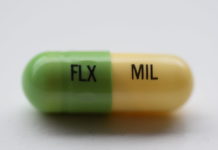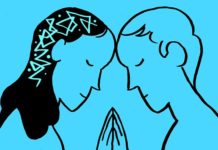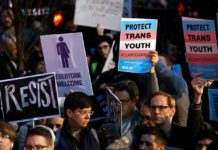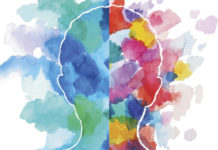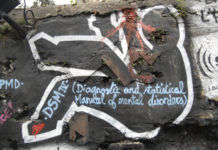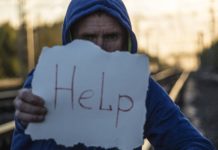Fluoxetine Not Helpful for Children with Autism
A clinical trial finds Prozac no better than placebo for improving repetitive behaviors.
Relapse in Antipsychotic Drug Trials is Poorly Defined
There is a lack of consensus in the definition of ‘relapse’ across randomized controlled trials of antipsychotic maintenance treatment for schizophrenia and psychosis.
Researchers Challenge Evidence for Antidepressants in Youth
Researchers shed light on the precarious nature of evidence from efficacy trials of antidepressant medication to treat symptoms of major depressive disorder in children and adolescents.
It is Time for Global Mental Health to Acknowledge Sociostructural Determinants of Distress
Researchers call for action to address social challenges and inequalities that obstruct mental health and well-being globally.
Social Relationships Integral to Recovery in First Episode Psychosis
Research finds patients of first-episode psychosis report benefits from social relationships where their personhood is respected.
Non-Medical Treatments for PTSD Effective, Study Suggests
Group-based MBSR and PCGT therapies effective as a complementary treatment for PTSD.
People Diagnosed with Bipolar Disorder at Increased Risk for Parkinson’s
Increased Parkinson's risk could be related to lithium, antipsychotic, and antiepileptic drug use.
A Blueprint for an ‘Ecosocial’ Person-Centered Psychiatry
New article pushes for a shift from a psychiatry centered on brain circuitry toward an 'ecosocial' view of mind, brain, and culture.
NICE Guideline Update Acknowledges Severe Antidepressant Withdrawal
A new update to the NICE guideline for depression suggests providers discuss long-term, severe antidepressant withdrawal symptoms.
A Social Psychiatry Manifesto that Takes Social Context Seriously
A re-visioned approach to social psychiatry aims to understand the broad influence of social life on mental health.
Smartphones, Loneliness, and Depression in Teens
New study finds that smartphone use may precede experiences of loneliness and depressive symptoms among older teens according to longitudinal analysis.
“Flimsy Evidence” for Esketamine as Depression Treatment
A new article documents the “flimsy evidence” behind the recent FDA approval of the party drug esketamine for the treatment of depression.
Reforming Schools to Prevent Mental Health Issues
New research explores the use of broad-based school-integrated resiliency and mindfulness interventions to prevent mental health concerns before they occur.
Discrimination Leads to Mental Distress for Gender Diverse People
Researchers seek to identify adaptive coping responses to discrimination for the transgender and gender diverse community.
Non-Gender Affirmative Treatment Detrimental to Mental Health
Gender identity conversion efforts impact psychological distress and lifetime suicidality in transgender people.
Loneliness Increases Risk of Severe ‘Common Mental Disorders’
Loneliness was found to both predict and be reinforced by severe common mental disorders.
Clinical Trials Show Antidepressants “Not Beneficial in the Long Term”
Clinical trials also consistently fail to measure and report long-term harmful effects.
Clinical Guidelines for Depression Need Urgent Revision
A coalition of 35 health organizations expressed serious concerns that the NICE guideline for adult depression may cause clinical harm—they demand “full and proper” revisions.
Researchers: “Antidepressants Should Not be Used for Adults with Major Depressive Disorder”
A new review, published in BMJ Evidence-Based Medicine, concludes that antidepressants should not be used as the risks outweigh evidence for benefits.
A Biopsychosocial Model Beyond the Mind-Body Split
Can a renewed biopsychosocial approach, grounded in an updated philosophy, foster person-centered medicine, and psychiatry?
Time’s Up: Culture of Denial Impacts Mental Health of Sexual Abuse Survivors
Study finds that not believing sexual abuse survivors often leads to self-blame and mental health issues.
Decontextualized Depression and PTSD Diagnoses Fail Indigenous Communities
A case analysis of an American Indian woman illustrates how the DSM diagnostic criteria misrepresent the lives of indigenous people.
How Social Dynamics at School Impact Teen Suicide
Teen suicide risk is influenced by relationships with adults and teachers, perceived popularity, close friendships, and school connectedness.
Zoloft Does Not Improve Depression, Even in Severe Cases, Study Finds
Despite their finding, the researchers suggest that SSRIs be given to people who do not meet criteria for depression or anxiety.
Economic Deprivation and Social Fragmentation Drive Suicide Rates in US
Major study finds that economic deprivation and a lack of social capital are driving increasing rates of suicide in the U.S.

